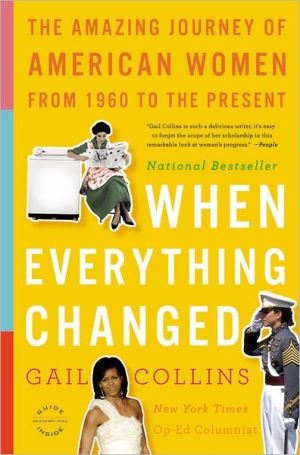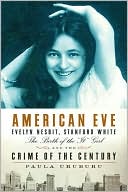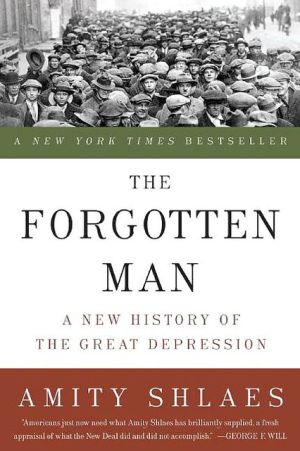When Everything Changed: The Amazing Journey of American Women from 1960 to the Present
Picking up where her previous successful, and highly lauded book, America's Women, left off, Gail Collins recounts the sea change women have experienced since 1960. A comprehensive mix of oral history and Collins's keen research, this is the definitive book about five crucial decades of progress, told with the down-to-earth, amusing, and agenda-free tone this beloved New York Times columnist is known for. The interviews with women who have lived through these transformative years include an...
Search in google:
Gail Collins, New York Times columnist and bestselling author, recounts the astounding revolution in women's lives over the past 50 years, with her usual "sly wit and unfussy style" (People).When Everything Changed begins in 1960, when most American women had to get their husbands' permission to apply for a credit card. It ends in 2008 with Hillary Clinton's historic presidential campaign. This was a time of cataclysmic change, when, after four hundred years, expectations about the lives of American women were smashed in just a generation.A comprehensive mix of oral history and Gail Collins's keen research—covering politics, fashion, popular culture, economics, sex, families, and work—When Everything Changed is the definitive book on five crucial decades of progress. The enormous strides made since 1960 include the advent of the birth control pill, the end of "Help Wanted—Male" and "Help Wanted—Female" ads, and the lifting of quotas for women in admission to medical and law schools. Gail Collins describes what has happened in every realm of women's lives, partly through the testimonies of both those who made history and those who simply made their way.Picking up where her highly lauded book America's Women left off, When Everything Changed is a dynamic story, told with the down-to-earth, amusing, and agenda-free tone for which this beloved New York Times columnist is known. Older readers, men and women alike, will be startled as they are reminded of what their lives once were—"Father Knows Best" and "My Little Margie" on TV; daily weigh-ins for stewardesses; few female professors; no women in the Boston marathon, in combat zones, or in the police department. Younger readers will see their history in a rich new way. It has been an era packed with drama and dreams—some dashed and others realized beyond anyone's imagining. The New York Times Book Review - Amy Bloom Did feminism fail? Gail Collins's smart, thorough, often droll and extremely readable account of women's recent history in America not only answers this question brilliantly, but also poses new ones about the past and the present, as she explicates moments that were widely recorded and illuminates scenes that were barely remarked upon at the time.
\ From Barnes & NobleGail Collins' America's Women (HarperCollins, 0061227226, $15.99) escorted readers through "400 years of dolls, drudges, helpmates, and heroines," thus setting the stage for this inspiring recap of the amazing progress (and occasional setbacks) experienced by women in the past five decades. The first chapters of When Everything Changed will astonish many younger readers with their accounts of the casually expressed sexism of the Korean War and Vietnam War era; even older men and women will bristle with anger at Collins's stories of hard-fought battles for basic human rights. Like its predecessor, this narrative history by a veteran New York Times columnist avoids preachiness as its move briskly forward. Snapshots of a revolution not yet won. Now in paperback.\ \ \ \ \ \ Cathleen SchineCollins, whose prose is vigorous and direct, has an unflaggingly intelligent conversational style that gives this book a personal and authoritative tone all at once.\ — The New York Review of Books\ \ \ Katha PollittExhilarating, accessible, and inspiring.\ — Slate.com\ \ \ \ \ <b>Margaret Talbot</b>"Fascinating...This story of how ideas that were once the norm began to seem unfair and then absurd is what Gail Collins tells in her lively new book. Until now, the second wave women's movement hasn't had its big ambitious history-the equivalent to Taylor Branch's multivolume narrative of the civil rights movement. There have been brilliant memoirs and revealing biographies and scholarly books that took slices of the movement and put them under a magnifying glass, but nothing as sweeping and accessible as this."\ — Slate.com's "DoubleX"\ \ \ \ \ <b>Rasha Madkour</b>"Riveting and remarkably thorough in its account of this tumultuous period.... Collins draws on an impressive variety of sources...and employs her engaging and accessible writing style to created a very readable history book."\ — The Associated Press, New York Times, Los Angeles Times, New York Post, New York Daily News\ \ \ \ \ Liza MundyGail Collins's rich, readable account of the last 50 years of the women's movement…reminds us of the triumphs, mortifications and hilarity of the early decades, as well as the personalities.\ —The Washington Post\ \ \ \ \ Francine ProseProviding capsule histories of liberals and conservatives, of ordinary women and public figures, from Betty Friedan to Billie Jean King, from Bella Abzug to Justice Sandra Day O'Connor, from Gloria Steinem to the antigay activist Anita Bryant, Ms. Collins reminds us of how many aspects of our lives were affected by the battles these women fought. And even readers who lived through this era may be surprised to discover how much they never knew, or have forgotten…Among the impressive features of Ms. Collins's book is her genial, fair-minded sympathy, her refusal to smirk at the excesses of the most radical '70s feminists or at the stances of women, among them Phyllis Schlafly, who counseled their sisters to stay home where they belonged.\ —The New York Times\ \ \ \ \ Amy BloomDid feminism fail? Gail Collins's smart, thorough, often droll and extremely readable account of women's recent history in America not only answers this question brilliantly, but also poses new ones about the past and the present, as she explicates moments that were widely recorded and illuminates scenes that were barely remarked upon at the time.\ —The New York Times Book Review\ \ \ \ \ Publishers WeeklyYou've come a long way, baby: that's Collins's conclusion about American women, who once lacked the right to publicly wear pants and now take their place on the presidential campaign trail and the battlefield. New York Times columnist Collins attempts a comprehensive account of the last 50 years of women's history in this sequel to America's Women, primarily focusing on the 1960s. Giving relatively short shrift to the current generation of young women, Collins centers the bulk of her attention on the baby boom generation (to which she belongs) and leaders like NOW founder Betty Friedan and Gloria Steinem, as well as dozens of ordinary struggling women. The book's stronger parts include highlighting pioneers like Congresswoman Martha Griffiths, who began her political career in the 1940s and stories of laughably shortsighted sexism against Sandra Day O'Connor. Collins captures the conundrums of feminism's success (does a see-through blouse make a woman liberated or a sex object?), but the book will probably resonate most for her generational peers. 16 pages of b&w photographs. (Oct. 14)\ \ \ \ \ Kirkus ReviewsThe impressive sequel to America's Women: 400 Years of Dolls, Drudges, Helpmates, and Heroines (2003). Collins-the first-ever female editor of the New York Times, and currently an op-ed contributor-offers an enormously entertaining cultural and social history. Her extensive research weaves the compelling stories of more than 100 women, ranging in age from 20 to 80, into a larger narrative of politics, economics and sexual mores. The author chronicles the story of the National Organization for Women (NOW), the women's-liberation movement and its forerunner, the civil-rights movement, the failed struggle for the Equal Rights Amendment and the impact of Roe v. Wade and Title IX. She populates her account with dozens of well- and lesser-known female leaders, including Sherri Finkbine, Betty Friedan, Gloria Steinem, Alice Paul, Margaret Chase Smith, Phyllis Schlafly, Helen Gurley Brown and Billy Jean King. Collins paints a vivid picture of the world as it was, and as it has so radically altered life for American girls and women. Fashions, hairstyles, dating, birth control-all are grist for her mill. Without preaching, she shows the sexism that women (and men) once accepted as the norm, and she backs up her often eye-opening stories with hard facts and solid statistics. From the opening anecdote of a woman expelled from traffic court in 1960 for appearing in slacks, to the closing one of a woman fired from her job as a bus driver in 2007 for refusing to wear slacks, this an engrossing account of how not just the daily lives, but the assumptions and expectations of women have changed so much in so short a time. Collins can be deadly serious and great fun to read at the same time. A revelatorybook for readers of both sexes, and sure to become required reading for any American women's-studies course. Agent: Alice Martell/Alice Martell Agency\ \ \ \ \ Judith NewmanNew York Times columnist Collins is such a delicious writer, it's easy to forget the scope of her scholarship in this remarkable look at women's progress over the past 50 years.... Next time you're sitting by yourself, happily, in a café, thank Betty Friedan, who was kicked out of a Ritz-Carlton bar for drinking alone, wrote about it—and helped spark a revolution.\ — People\ \ \ \ \ Amy BloomDid feminism fail? Gail Collins's smart, thorough, often droll and extremely readable account of women's recent history in America not only answers this question brilliantly, but also poses new ones about the past and the present. . . . Collins . . .begins When Everything Changed with the best summary of American women's social and political history that I've read. . . .One of the many pleasures {here} is that Collins also reminds us of what women did in private.\ — The New York Times Book Review\ \ \ \ \ Margaret TalbotFascinating...This story of how ideas that were once the norm began to seem unfair and then absurd is what Gail Collins tells in her lively new book. Until now, the second wave women's movement hasn't had its big ambitious history-the equivalent to Taylor Branch's multivolume narrative of the civil rights movement. There have been brilliant memoirs and revealing biographies and scholarly books that took slices of the movement and put them under a magnifying glass, but nothing as sweeping and accessible as this.\ — Slate.com's Double X\ \ \ \ \ Francine ProseGail Collins's When Everything Changed points out what the women on "Mad Men" know: that period in our history was less enjoyable for the ladies.... The early pages of Ms. Collins's book are peppered with accounts of incidents so outrageous they almost seem like jokes....but Ms. Collins underlines the serious consequences of such risible moments by including the stories of individual women-from overworked housewives to marginalized politicians-whose lives were cramped and deformed by the culture's low opinion of their capabilities.... Ms. Collins reminds us of how many aspects of our lives were affected by the battles these women fought. And even readers who lived through this era may be surprised to discover how much they never knew, or have forgotten...Among the impressive features of Ms. Collins's book is her genial, fair-minded sympathy, her refusal to smirk at the excesses of the most radical '70s feminists or at the stance of women, among them Phyllis Schlafly, who counseled their sisters to stay home where they belonged. This evenhandedness seems all the more admirable later in the book, when she considers the significance of Hillary Rodham Clinton's and Sarah Palin's roles in the 2008 presidential election.\ — New York Times\ \ \ \ \ Elizabeth TooheyWhat better time to look at American women's progress since the '60s, now that the dust has settled on the 2008 presidential election when so much was won (and lost) by women?... Gail Collins's near epic history When Everything Changed...also captures the playfulness and humor in women's advancement.\ — The Christian Science Monitor\ \ \ \ \ Ben DickinsonThe past is a foreign country' is the kind of hallowed quotation that's resolutely opaque until you stumble on something that drives home its emotional truth. The uncanny feeling it references is that one that recurs frequently as you read When Everything Changed, the absorbing history of feminism and American women's lives by Gail Collins, the resident editorial fount of wry Midwestern common sense at The New York Times.... What Collins does, which so pitiably few pop-history writers do, is bring the stories, the anecdotes that come to life and pull you in.\ — Elle\ \ \ \ \ Katherine BoyleThis is not only a fascinating record of how far women have come, it is also a missive to a new generation of women, reminding them to keep the faith.\ — Booklist\ \ \ \ \ Elaine ShowalterA lively account...Collins uses her great sense of revealing anecdote, engaging personalities, representative case histories, resonant stories, and startling details to defamiliarize a decade we thought we remembered, and to show how truly far American women have come in every aspect of their lives.... Collins's message is inspiring and timely, and all the techniques she employs to make this book fun to read—and impossible to deny—deserve critical praise as well as popular success.\ — Progressive Book Club\ \ \ \ \ Eliza BorneIn a fascinating history, Gail Collins goes behind the scenes of the women's rights movement.... When Everything Changed provides a sweeping, fascinating look at modern women in our country. Filled with facts, court cases and legislation, the book is rich with personal anecdotes. Collins and her researchers interviewed more than 100 women for this history, and for many contemporary readers, their findings will be startling and sometimes heartbreaking.... The end of her book will make many readers swell with pride—it features updates on the lives of the interview subjects featured in the book, many of whom went on to break barriers for many years. The story their lives helped write—of American women from the 1960s to today—is inspiring and compelling.\ — BookPage\ \ \ \ \ Sharon UllmanI should mention that Collins is at the top of my guest list for my imaginary dinner party, the theme of which would be: 'Famous fun people I'd like to meet and talk with, but probably never will'...Readers will appreciate the exceptional detail with which Collins lays out the accepted universe of closed opportunities and limited horizons that women faced in 1960. Collins interviewed a variety of women from around the country, and it is fascinating to hear them describe a world that seems unthinkable now but which few could imagine challenging at the time....The stories that emerge are...deeply moving.\ — Boston Sunday Globe\ \ \ \ \ Glenn C. AltschulerSplendid...Collins is a masterful storyteller.\ — NPR.com\ \ \ \ \ Michelle JonesSocial history at its best, an engaging and accessible collection of facts fleshed out with cameo appearances by and capsule biographies of people who played a role in transforming the lives of American women.\ — Pittsburgh Post-Gazette\ \ \ \ \ Connie SchultzIn her pithy, wide-ranging and readable new book, Gail Collins whisks us through nearly five decades of women's history... Famous names and familiar stories appear, but what is most compelling are the vignettes of women who would have remained obscure without the work of Collins and her research team. Through their stories we experience the rat-a-tat-tat of daily indignities—big and small—that built to a crescendo we now call the women's movement.\ — The Cleveland Plain Dealer\ \ \ \ \ Ellen GoodmanWomen aren't nostalgic for the old days. If anyone is, just watch a few episodes of "Mad Men" as an antidote, with its suffocated Mad Wife Betty Draper and its slapped-down Working Woman Peggy Olsen. If you prefer nonfiction, leaf through the early chapters of Gail Collins's history When Everything Changed to those magical yesteryears when a flight attendant was weighed, measured, and hired to be a flying geisha.\ — The Seattle Times\ \ \ \ \ Jill LawrenceReaders familiar with her work will recognize her eye for ironic detail in this wry, insightful and comprehensive book...there are many wonderful, triumphal moments...Collins wants us to remember how bad things were in the 1960s, and she succeeds.\ — Politics Daily\ \ \ \ \ Chris VognarCompulsively readable....Millions lived through the material Collins covers in her new book. To those who did not, it might read a little like science fiction.\ — The Dallas Morning News\ \ \ \ \ LadiesHomeJournal.comGail Collins walks you through a fascinating five decades of history that shows you just how far women have come.\ \ \ \ \ Rasha MadkourRiveting and remarkably thorough in its account of this tumultuous period.... Collins draws on an impressive variety of sources...and employs her engaging and accessible writing style to created a very readable history book.\ — The Associated Press, New York Times, Los Angeles Times, New York Post, New York Daily News\ \ \ \ \ Ami AngelwiczThe new must-have text for modern feminists. Her simple message to our generation: We must not take our astounding journey for granted.\ — The Frisky.com\ \







